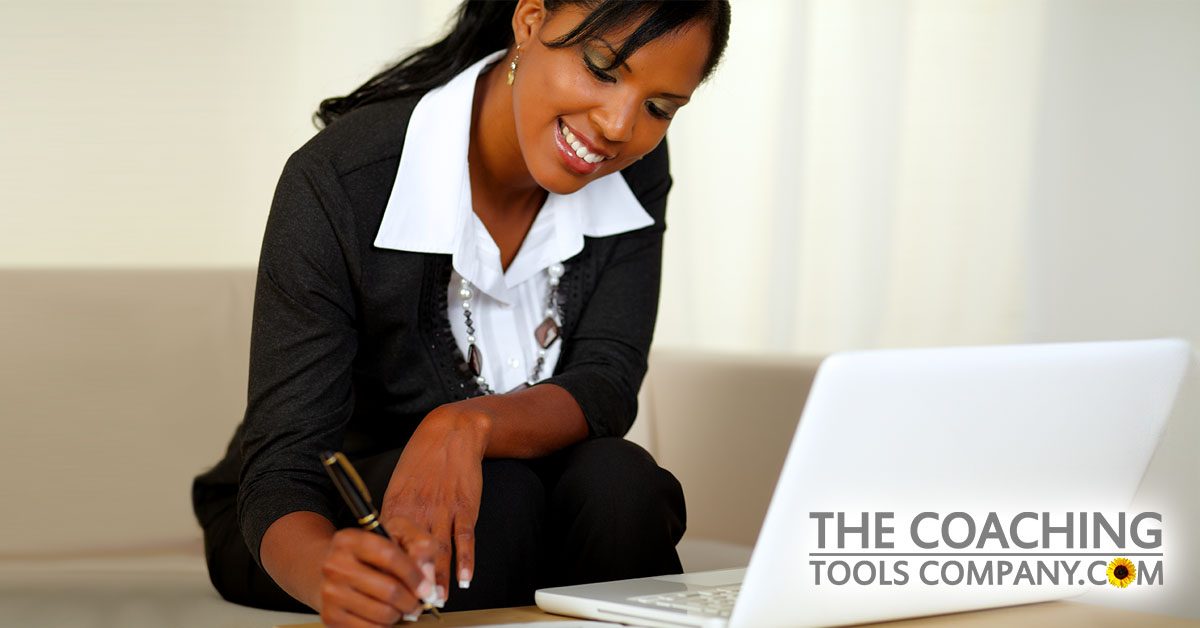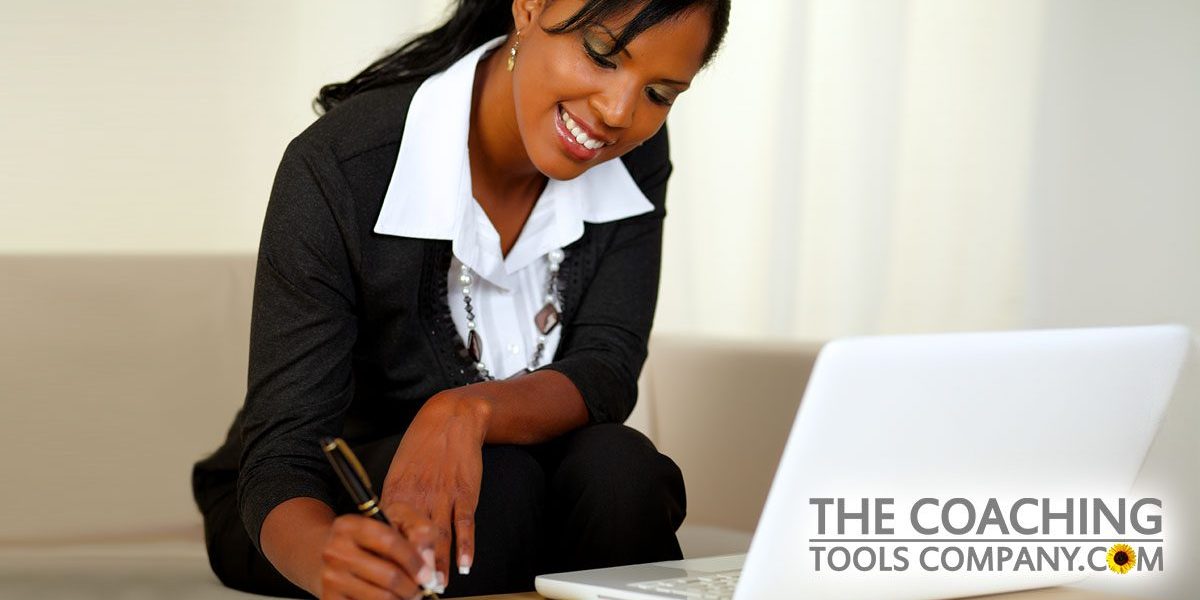Originally Posted on The Coaching Tools Company as Self-Confidence for Coaches: 3 Activities to Assess Your Confidence Levels | by Lynda Monk, MSW, RSW, CPCC

Nothing extraordinary can be done without confidence. Confidence helps us overcome our fears and doubts: It helps us bounce back during times of adversity and it helps us take risks and deal with our failures. And as coaches, self-confidence is important for us to do our best work.
Coaching and confidence have an interesting relationship. We often help our clients explore their strengths and build more confidence. Meanwhile, coaching others can build our own confidence and self-esteem—and sometimes challenge it too!
Confidence helps us take action toward our dreams and do what it takes to tend to and grow our meaningful, purposeful work in the world as coaches. It’s something many of us want more of in our lives and work.
But what is confidence, really?
Well, we can have confidence in ourselves. And we can have confidence in others.
- According to the dictionary, confidence is “a feeling of self-assurance arising from one’s appreciation of one’s own abilities or qualities.”
As a coach with skills, abilities and a kind heart, you radiate self-confidence.
- Confidence is also “the feeling or belief that one can rely on someone or something, you can have a firm trust.”
Your clients have every confidence in you as their coach.
Here, we’ll focus on the first type, self-confidence. Let’s try two simple activities to explore when you are most and least confident—and then one final activity to see what you can do to shift the tide of your self-confidence as a coach.
Self-confidence is the internal tool that helps you thrive at work, at home, and in the world. Self-confidence means you respect who you are enough to know you can genuinely bring value and help people. Dave Schools
Here are 3 Activities to Assess Self-Confidence for Coaches
Activity 1: Where in your life have you shown confidence?
Even in moments of doubt, looking at courageous actions you’ve taken in the past can give you a sense of what you’re capable of.
Try this activity:
- Ask yourself: What have you done in your life that required confidence and belief in yourself?
- Make a list of these things. Include your thoughts, feelings, body sensations and any other things that you notice when you’re expressing confidence.
- Don’t overthink it, just write down some of the first things that come to mind and heart.
Here is my journal entry responding to this question:
When I think back over the course of my life so far, I can think of many things that have required my confidence: being a partner/spouse, being a parent, choosing a career, going to university, leaving my front-line social work career and starting my own business, ending my first marriage and getting a divorce, moving to an island on my own where I didn’t know anyone, public speaking to large audiences of people, traveling alone, writing and publishing a book, becoming a coach, creating numerous training programs and courses and offering them to organizations and groups, buying real estate, surviving a financial crisis with real estate, living across the country from my family most of my adult life, rock jumping into a river (it wasn’t that high but I was terrified to leap and eventually mustered my courage and confidence and jumped!) and this list could go on. I can also think of many times when my confidence has felt low and challenged too.
Activity 2: How do you know when you’re not feeling confident?
Even if we generally feel relatively secure, we all experience moments when we feel less than confident.
Try this activity:
- Ask yourself: What are some of the signs that you are experiencing low confidence? Where do you believe other people are confident and you aren’t?
- Make a list of these things. Include your thoughts, feelings, body sensations and any other things that you notice when you’re lacking confidence.
- If it helps, think back to the last time you felt like this and write the first things that come to mind and heart.
How do your know when your self-confidence is low?
Here are some example signs of when a person has low confidence and lacks self-esteem:
- Oversensitivity
- Perfectionism
- Social withdrawal
- Easily angered by other people’s actions
- High level of fear and anxiety
- Difficulty speaking up
- Lack of healthy boundaries
- Preoccupied with personal problems
- Self-loathing or self-hatred
- Feelings of worthlessness
- Easily experiencing feelings of overwhelm
- Unrealistic goal setting
- People pleasing and having a hard time saying no
- Lack of assertive communication skills
- Perpetual negative thought patterns
Activity 3: What can you do to shift the tide of self-confidence?
Self-confidence can ebb and flow—but it can also be strengthened. It’s a myth that confidence is required before we take action. In fact, the opposite is true. The more often we take the actions we are inspired to take, the more confident we become.
So we can all increase our self-confidence as coaches with effort and practices that support our self-awareness, choices and actions. For example, if you aren’t feeling confident as a new coach, the best way to increase your confidence is to do more coaching. As you do more coaching, your skills and experiences as a coach will grow, and your confidence will increase as they do.
Try this activity:
- Ask yourself: What do you need to believe to feel more confident? What experiences will increase your confidence?
- Make a list of these things. Include as much detail—and variety—as you can.
- Now do them in your life!
Wrap-up
If you hear a voice within you say you cannot paint, then by all means paint, and that voice will be silenced. Vincent Van Gogh
Confidence is at the heart of powerful coaching that makes a difference! And confidence grows in the presence of kindness. Kindness is about putting what’s best for you and others first. It’s about listening more, understanding, and responding with self-compassion, care—and confidence.
So remember to be kind to yourself, and try these activities to see where you’re at and what you could do to boost your self-confidence as a coach.
If you liked this article about self-confidence for coaches, you may also like:
Watch for next week’s article/newsletter with Part 2 of this article from Lynda Monk: 4 Practical Journaling Exercises to Activate the Confidence in YOU!
- Nothing Builds Confidence Like Taking a Risk… and Failing by Delaney Tosh CPCC, PCC
- How to Boost Your Confidence in Group and Team Coaching by Jennifer Britton
- INFOGRAPHIC: Boost Your Self-Confidence with These 7 Easy Tips







